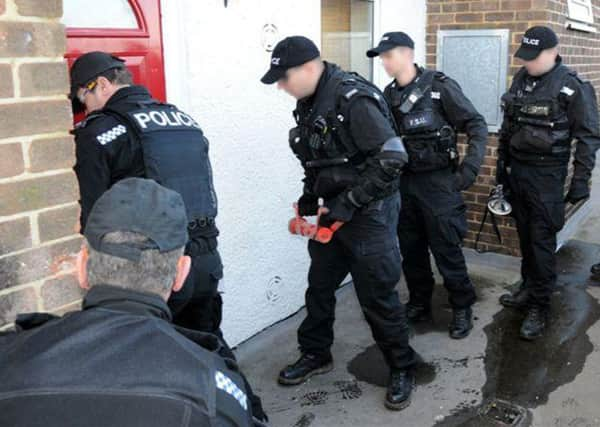Criminals make £55m in Hampshire's illicit economy with police clawing back £5m


But convicted offenders, including drug dealers and fraudsters, have been ordered to pay back just under £5m, police figures show.
The data obtained by The News give an insight into cash made by those who are pursued through the courts.
Advertisement
Hide AdAdvertisement
Hide AdBut Hampshire’s illicit economy is likely to be worth much more as the figures do not include court-ordered compensation and do not estimate how much offenders not caught have made.
Detective Sergeant Rob Cooper, who supervises Hampshire police’s financial investigation unit, said: ‘If we have got evidence to suggest that people are committing acquisitive crime and making money from proceeds of crime we take that very seriously.
‘We have dedicated criminal investigation teams under the serious crime directorate to pursue those individuals.
‘If they’ve got any assets whatsoever we will actively pursue them.’
Advertisement
Hide AdAdvertisement
Hide AdAround a dozen dedicated financial investigators work in the unit, battling to deprive gangs and individuals of cash and assets gained through illicit means.
Recent cases include a gang of six men jailed for 35 years for supplying cocaine trafficked from Manchester to Portsmouth. They were ordered by a judge to pay back £12,229 after the court ruled they benefited by £285,000.
Last year a gang run by ‘lynchpin’ Samuel McNamee, of Rockrose Way, Paulsgrove, and a serving prisoner, was ruled to have made £720,000 after bringing cocaine from Luton and London to Portsmouth.
The gang was jailed for a combined total of 100 years and ordered to pay back between £16,731 and £1 each.
Advertisement
Hide AdAdvertisement
Hide AdFigures from Hampshire police show 421 confiscation orders were made by the courts between 2013/14 and 2016/17.
Each confiscation order includes a benefit figure – how much the offender has made – and an amount available, which gives a value of any assets the convicted criminal has left to pay back.
Cash paid back is dwarfed by cash made as convicts often have no assets.
But criminals face extra time in prison if they do not pay back the money. Police can go back to court years later to take assets they gain in the future.
Advertisement
Hide AdAdvertisement
Hide AdDet Sgt Cooper added: ‘Sometimes we see a high benefit order and smaller order for amount available, but it still hangs over them.’
The highest number of orders were granted in 2016/17, with 128 made, aimed at confiscating £32.72m but just £1.95m worth of assets were paid back.
In 2013/14, 120 orders were made with a £10.12m benefit figure and £1.36m available.
In the following year 101 orders were made totalling a £7m benefit figure, with £1.26m available to pay back. The lowest number of orders was made in 2015/16, with £5.59m total benefit and £367,131 worth of assets available.
Advertisement
Hide AdAdvertisement
Hide AdOrganised criminal gangs can take years to bring to justice before confiscation proceedings can begin, Det Sgt Cooper said.
Confiscated cash is split with police and prosecutors at 18.75 per cent each, courts 12.5 per cent and the Home Office gets half.
CONFISCATION orders are just one item in the arsenal police use to deprive criminals of ill-gotten gains.
Detective Sergeant Rob Cooper, who supervises the financial investigation unit, said police can also ask Southampton magistrates to detain cash seized by police.
Advertisement
Hide AdAdvertisement
Hide AdThe civil detention order, which must be made within 48 hours of cash of over £1,000 being seized, are granted for up to two years. Courts can also order that cash be forfeited, even if criminal prosecution does not continue. Amounts of less than £1,000 can be seized as evidence by police without the courts.